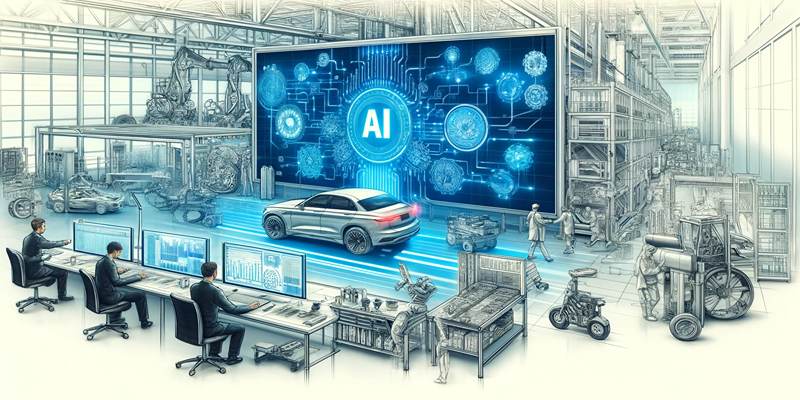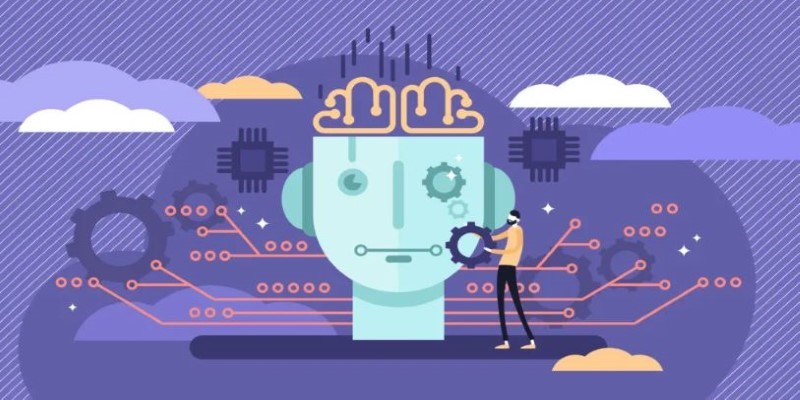OpenAI's meteoric rise in the tech world has captured the attention of investors, businesses, and consumers alike. The company, founded in 2015 by visionaries like Elon Musk and Sam Altman, has made huge strides in artificial intelligence (AI), creating models that power everything from chatbots to image generation tools.
One of OpenAI's most important achievements is raising tremendous amounts of capital. The company's most important fundraising was $6.6 billion. This article examines how such an AI startup managed to raise such an impressive amount and what this means for the future of artificial intelligence.
The Foundation of OpenAI
First, in order to understand how OpenAI managed to raise so much money, we must look into the company's foundation and mission. When founded, OpenAI was initially a non-profit organization that aimed at developing AI that could benefit humanity. The founders were driven by the idea of making AI accessible and controlled in ways that do not lead to harm or monopolization. However, the company transitioned over the years into a "capped-profit" model, which allowed it to attract larger investments while still keeping its commitment to its original mission.
One significant decision that facilitated funding for OpenAI was choosing to pivot to a hybrid form, taking the very best of one and combining it with the other—namely, helping investors see value but also ethics. This profitability and responsibility will place OpenAI above many rivals as a strong and trusted pioneer in AI creation.
The Road to Securing $6.6 Billion
This wasn't overnight, but rather a journey of raising the $6.6 billion. More factors emerged, including the technological breakthroughs of OpenAI and its strategic partnership with big corporations such as Microsoft. In 2019, Microsoft invested $1 billion in OpenAI, while the deal would open doors for further investments by encouraging business applications from products developed in its models by Microsoft.

The company’s deep learning models, such as GPT-3, have gained significant attention for their ability to generate human-like text, leading to widespread interest in their commercial applications. With increasing demand for AI solutions in various industries, investors began to see OpenAI as not only a research organization but a commercially viable entity with immense growth potential.
Moreover, OpenAI's leadership played a pivotal role in the funding process. Sam Altman, the company’s CEO, has been instrumental in securing partnerships and building investor confidence. Altman’s previous successes as the president of Y Combinator and his ability to articulate OpenAI’s mission helped draw in investors who were eager to get in on the ground floor of the AI revolution.
What Makes OpenAI Attractive to Investors?
Investors are typically drawn to startups with the potential for both rapid growth and long-term impact. OpenAI ticks both of these boxes. Its technology is at the cutting edge of artificial intelligence, and it’s poised to revolutionize industries from healthcare to finance, transportation, and beyond. But the attraction doesn’t just lie in the technology itself; it also comes from the team behind it. OpenAI is filled with top-tier talent from various fields, including computer science, neuroscience, and engineering, making it a leader in AI research and development.
Another factor that makes OpenAI so appealing to investors is the increasing demand for AI solutions. As more companies begin to recognize the power of AI, they’re looking for partners who can help them integrate these technologies into their operations. OpenAI’s deep expertise, coupled with its strong relationships with major tech companies, makes it a prime candidate for such collaborations.
The promise of AI’s transformative potential also adds to the allure. OpenAI has shown that its models can do far more than just process data—they can generate new content, drive innovation, and solve complex problems. This potential to disrupt traditional industries and create entirely new ones makes OpenAI’s future seem particularly bright, even as the company continues to scale.
The Future of AI and OpenAI's Role
With $6.6 billion in funding, OpenAI is well-positioned to accelerate its efforts in advancing artificial intelligence. The company has already made significant strides in creating large language models like GPT-3 and DALL·E, which are setting new standards in AI capabilities. But this is just the beginning.

Looking ahead, OpenAI plans to push the boundaries of AI even further. One area where the company is particularly focused is improving the ethical and safety aspects of AI. With growing concerns about AI’s impact on society, OpenAI has committed to ensuring its technology is used responsibly. This includes focusing on transparency, reducing bias in AI models, and making sure the technology benefits all of humanity, not just a select few.
Additionally, OpenAI's funding will help drive research in new areas like reinforcement learning, robotics, and multimodal AI. These areas have the potential to revolutionize fields such as automation, healthcare, and even creative industries. By investing in research and development, OpenAI can continue to lead the way in creating powerful and responsible AI.
As AI becomes more deeply integrated into our daily lives, OpenAI’s role will only become more critical. The company’s ability to secure funding and push the boundaries of AI technology positions it as a major player in the global AI race. Whether it’s through partnerships, technological advancements, or new applications, OpenAI is poised to lead the charge in shaping the future of artificial intelligence.
Conclusion
OpenAI’s $6.6 billion funding success highlights the transformative potential of artificial intelligence. By combining cutting-edge technology with a commitment to ethical standards, the company has attracted significant investment and formed valuable partnerships. This financial backing will enable OpenAI to further innovate and shape the future of AI across industries. As the company continues to advance its research and development, it remains a key player in AI’s growth, poised to lead in creating technology that benefits society while maintaining responsibility. OpenAI’s journey underscores the immense possibilities AI holds for a better, more connected world.










